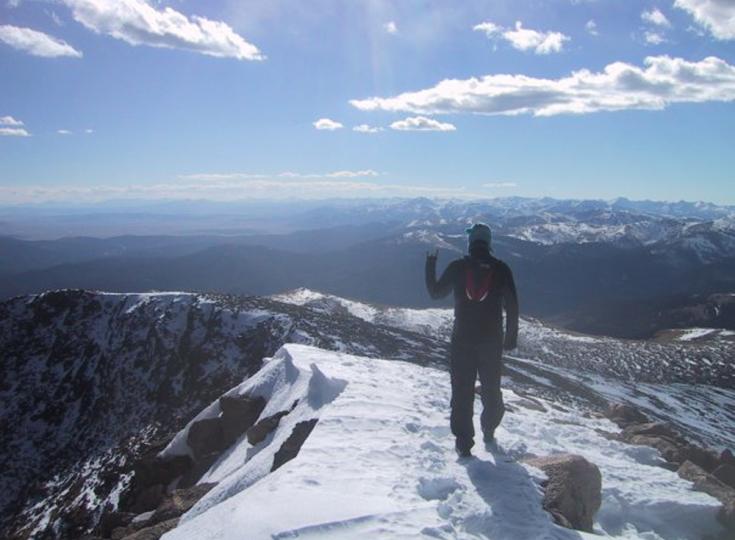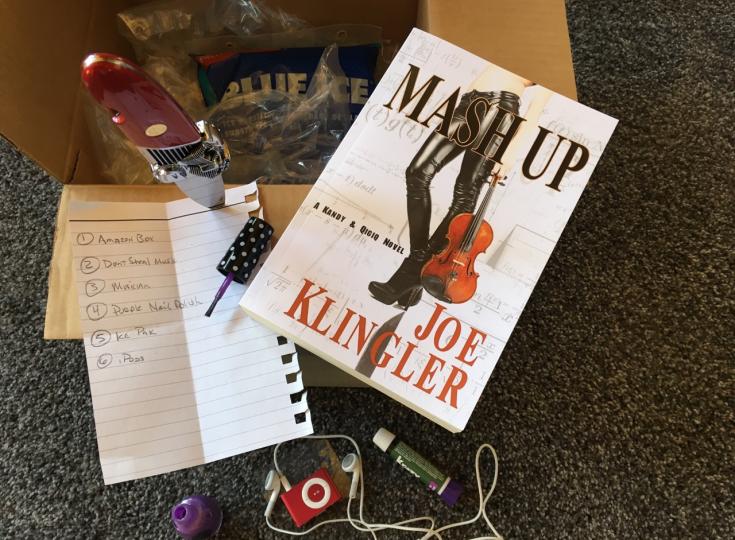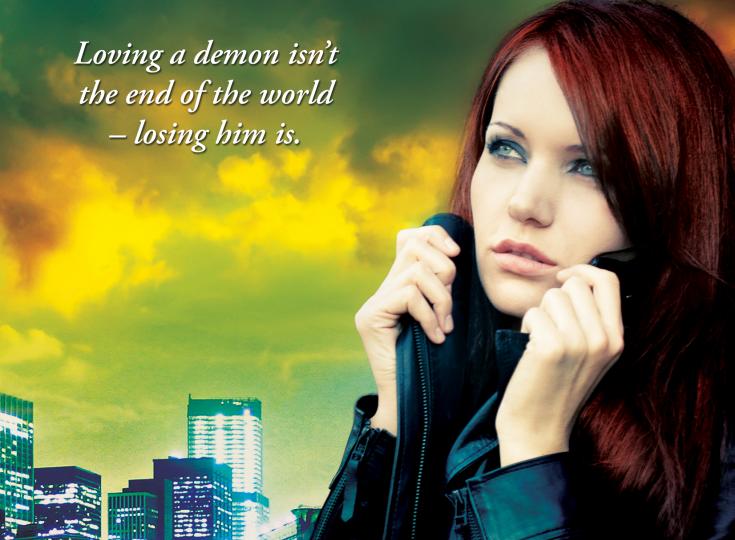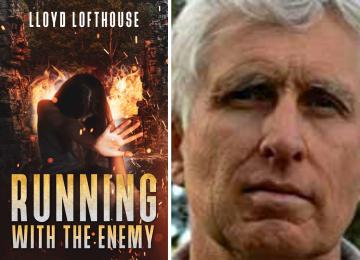Janson Mancheski - Mystery, Intrigue and Forensic Science
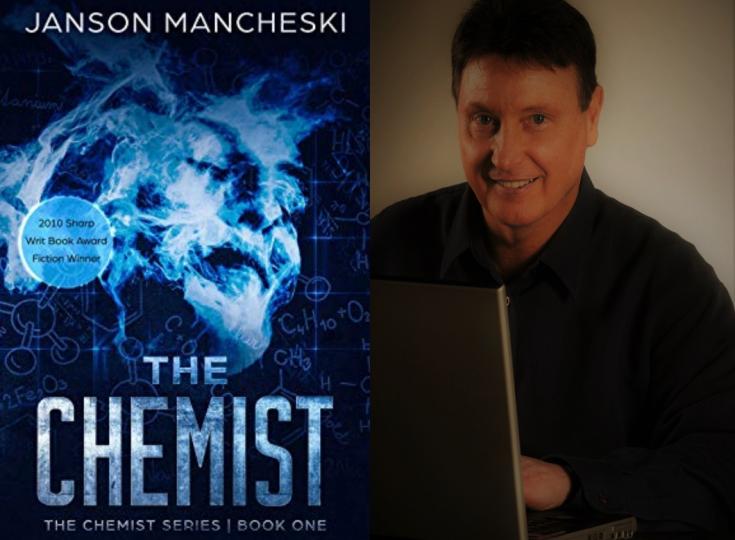
Janson Mancheski is the best-selling author of The Chemist series. He has garnished numerous movie script and fiction awards. He writes both crime and YA fiction. His novel The Chemist is up for movie option by Voyage Media Productions. As our Author of the Day, he tells us all about this book.
Please give us a short introduction to what The Chemist is about.
The Chemist is flawless. He leaves no evidence. No one has ever seen him, heard his voice, or felt the touch of his hand… And lived to tell the tale—which is a serious problem for Green Bay homicide investigator Cale Van Waring. Five months ago, a headless female body turned up in nearby Lake Michigan. There were no suspects and it became a cold case. Now it's spring again, and the Chemist is back. A new victim has gone missing, and the abduction matches the MO from last November's headless-body case. Theories abound: everything from cults to witchcraft covens to a serial killer. And with no clues or evidence, suspects are hard to come by; even a Green Bay Packers' player is thrown into the mix. But how do you catch a killer who leaves no evidence? How do you find a murderer so detail-oriented, he sometimes surprises himself? These are the questions the investigators must answer, before they can identify and stop the abductor who calls himself the Chemist.
What inspired this story?
I conceived the story in 2009, and it was first published in 2010 There was a scandalous rape case involving a Green Bay nightclub owner who would invite attractive female patrons to his apartment after his club closed. They trusted him because he was a good-looking 35-year-old, a fun and friendly business owner. And back then, a number of professional football players used to hang out at his establishment. So he was trusted. But it turned out that once back at his apartment, he would slip his female guests a knockout sedative, and after they passed-out, he would proceed to rape them. This was back when Bill Cosby's accusations were first coming forward. There was also a Packers player at the time named Darren Sharper, who years- later was convicted of similar crimes and went to prison.
Tell us more about Cale van Waring. What makes him tick?
Cale grew up as a high school athlete in Green Bay, so he has a lifelong allegiance to the Green Bay Packers. When Cale went to college in Chicago, he and his girlfriend were victims of an armed robbery. Like many 19-year-olds might have done back then, he attempted thwarting the robber, and the gun discharged and killed his girlfriend. This was the impetus that caused him to return to Green Bay and enter law enforcement. There he moved up through narcotics and homicide, and has eventually become the head of the special crimes unit. Being assigned to the chemist case plays havoc on his life. His live-in girlfriend Maggie wants to get engaged and settle down. But Cale still carries around his baggage and blames himself for having because the death of his college girlfriend. One of the themes of the novel is how do law enforcement officers act as loving dad's and husbands when there daytime job is chasing after a killer and trying to save the lives of kidnapped victims? How do serial killer hunters turn their job on and off?
Did you plan from the start to make this into a series? How do the other books in the series tie in with this one?
The first novel lent itself to the second and third – so the answer is yes, the characters actually turned the books into a series. Without revealing too much, one of the flaws of the kidnapper is that he's not a psychopathic killer. Thus he devises a clever way of disposing of his victims without killing them: he simply sells them to human traffickers, who then transport the victims to the far corners of the world. There is a market out there for healthy American females— your daughters and sisters and innocent neighbors—who are not hooked on drugs, and are forced into the sex slave market. Once the investigators uncover this dirty secret, Cale recognizes that if he is going to rescue any of these missing victims, he'll have to travel across the world to find them.
The Chemist was a highly successful book, featuring on esteemed news sites. What surprised you most about readers' reaction to it?
The story strikes a chord because it could happen to anyone. With the opioid and methamphetamine crisis going on, just about any would-be criminal can manufacture high potency narcotics in their garage. As evidenced by the series Breaking Bad. Readers can also empathize with the investigators, because opioids and fentanyl and human trafficking have been in our nightly news headlines just about every night for the past five years. As for the victims, what makes this story unique is that exposure to a liquid sedative (knock out drops) can happen to anyone, at any time. Fentanyl is odorless, colorless and tasteless. A dose the size of a grain of salt in your water bottle or cocktail can render anyone unconscious in a matter of minutes. It's very scary out there.
Besides writing, what other secret skills do you have?
Readers sometimes assume that suspense or horror writers must have some dark, internal demons in them, which causes them to create these types of bizarre stories. My dear mother taught me to read hundreds of novels from first grade on up. My dad was a highly successful football coach and an eye doctor. Thus I became an athlete and an eye doctor myself, and worked with local college sports teams for decades, and was the team eye doctor for the Green Bay Packers football team for over another decade. So I always had a blend of loving literature and enjoying solving medical problems – so I guess the result of that becomes a writer with the taste for mysteries that often involve dark themes, sometimes based around medical mysteries.
The Chemist uses a liquid sedative to kidnap victims - how realistic is this?
100% realistic. Anyone reading this right now can be prescribed a fentanyl patch that is applied to the skin for penetration. If someone happened to lace the dose with another sedative, the surgical sedative verse said for instance, the person would likely pass out in under a minute. This is how Michael Jackson overdosed. Thus we know clear and odorless liquid sedatives can easily penetrate the human skin, and the person would grow confused and likely pass out before they ever understood what hit them.
How much research did this book require from you to make the forensic part of it ring true?
Because of my background in pharmacology and chemistry, the forensic part was quite easy. Nicotine patches and other therapeutic patches are used by millions of people. The chemist's concept was in designing a liquid sedative that could be absorbed just by contact. So when you think about it, how many times have we reached for our car door handle when it's damp or misting out and thought nothing of it?
Your book has a sombre mood with high suspense - how did you pull this off?
The story creates a dark mood. You can't write about victims who are trapped and tortured by kidnappers in any sort of jokey manner. Plus when were talking about victims being kidnapped, parents and friends and family members are usually immediately involved. When the lives of loved ones are at stake, emotions run deep, and the potential devastation of the story lends itself to a number of dark themes. That's one of the tricks of the writer: detectives tell one another macabre jokes all the time – it's a defense mechanism. But it's up to the writer to make sure that the detectives are never seen taking the victims disappearances lightly. Real emotions have to be conveyed and stay true.
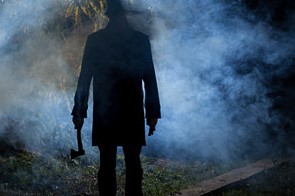
Which of your characters has been the most challenging to write for?
Because I'm dealing with such intense situations, and (ike every person) every character is different, you have to know the characters personality to understand how they'd react in certain situations. Cale walks a fine line by hunting for a killer by day, and then trying to be an attentive and loving boyfriend with Maggie at home. Slink Dooley, Cale's detective partner, is the sounding board trying to help him balance his moods. Maggie is frustrated because she doesn't want to put pressure on Cale to commit to their relationship while she knows his mind is preoccupied with rescuing victims and catching a killer. As for Chloe, sometimes she provides comic relief and sisterly advice for Maggie, so the trick is writing her psychic scenes without having her come off as Looney Tunes. So the challenge is making them all real while under stress, so that they stay in character and react the way real people would to each crisis they confront.
When writing from these sorts of perspectives, did you feel you had to sidestep certain stereotypes?
Yes. The trick is balance. When writing dark themes like murder and horror, you always have to create breathers for the reader via the characters personalities. The detectives have to joke with one another, because that's what humans do. Even though an hour ago they might've been in the autopsy room. Characters have multiple emotions, and we have to avoid cardboard cutouts of the roles they play in the story. For instance – though dogged and determined to stop the killer, Cale must show absolute empathy when dealing with their parents. Maggie, a confident and competent attorney in the courtroom, reacts by freezing up after being assaulted. The victims being held by the kidnapper become more desperate each day. And the kidnapper himself – the chemist – changes dramatically as his crimes devolve from a cat and mouse game with the cops, to his desperation and frustration with his partners in the trafficking scheme.
Do you have any interesting writing habits? What is an average writing day like for you?
My writing habits are erratic. I work a full-time job in the medical field, so finding time to create, polish, edit, re-edit… Is always a challenge. I only have five books currently published in the last 10 years. Theoretically, if I could afford to write every day, I'm sure I'd have 20 books published by now. In fact, my one regret is the same as the bio of JD Salinger. When I considered potentially exploring a writing career as I entered college, my father told me that he'd only pay for my schooling if I studied for a practical degree in the medical field. Thus 30 years of my writing career was swallowed up by working a real job in the medical field. One only imagines how many crazy stories I could've written in that time. Yet I have no regrets, because every one of us has a "would-a, should-a" story like that.
What are you working on now?
I'm currently working on the 4th book in the chemist series. I plan for volumes of Cale Van Waring getting back to regular detective work, while wrestling with the inner demons of the Witch Doctor – who never seems to fully evacuate his head. That's one of the themes I'll be exploring going forward – due to the trauma he encountered with the witch doctor Col. Mobutu, how much in her dialogue that goes on between them in Cale's head is real, versus imagined?
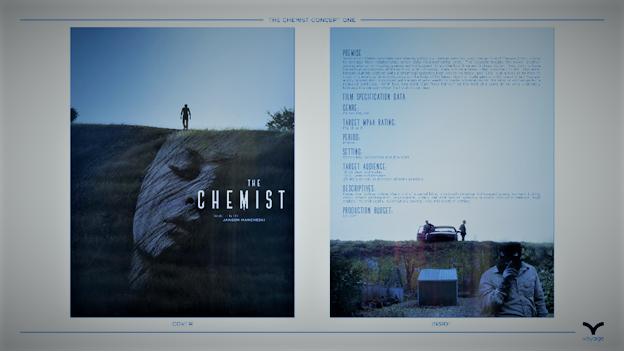
Where can our readers discover more of your work or interact with you?
The best place currently is usually joining my Facebook authors cite – where you can IM me personally, or else I'll always try to answer general questions to the group on the forum. I'm also trying to expand my email list, so when that's accomplished I'll be able to talk more individually via email. The other method is on my blog site – where we have the chemist movie trailer set up – but the site needs work in terms of easy back-and-forth communication. And speaking of the movie trailer – I've already written the chemist screenplay/movie script. And were in negotiations right now to begin producing the full-length movie, which will be set right in Green Bay. So that's kind of exciting.
